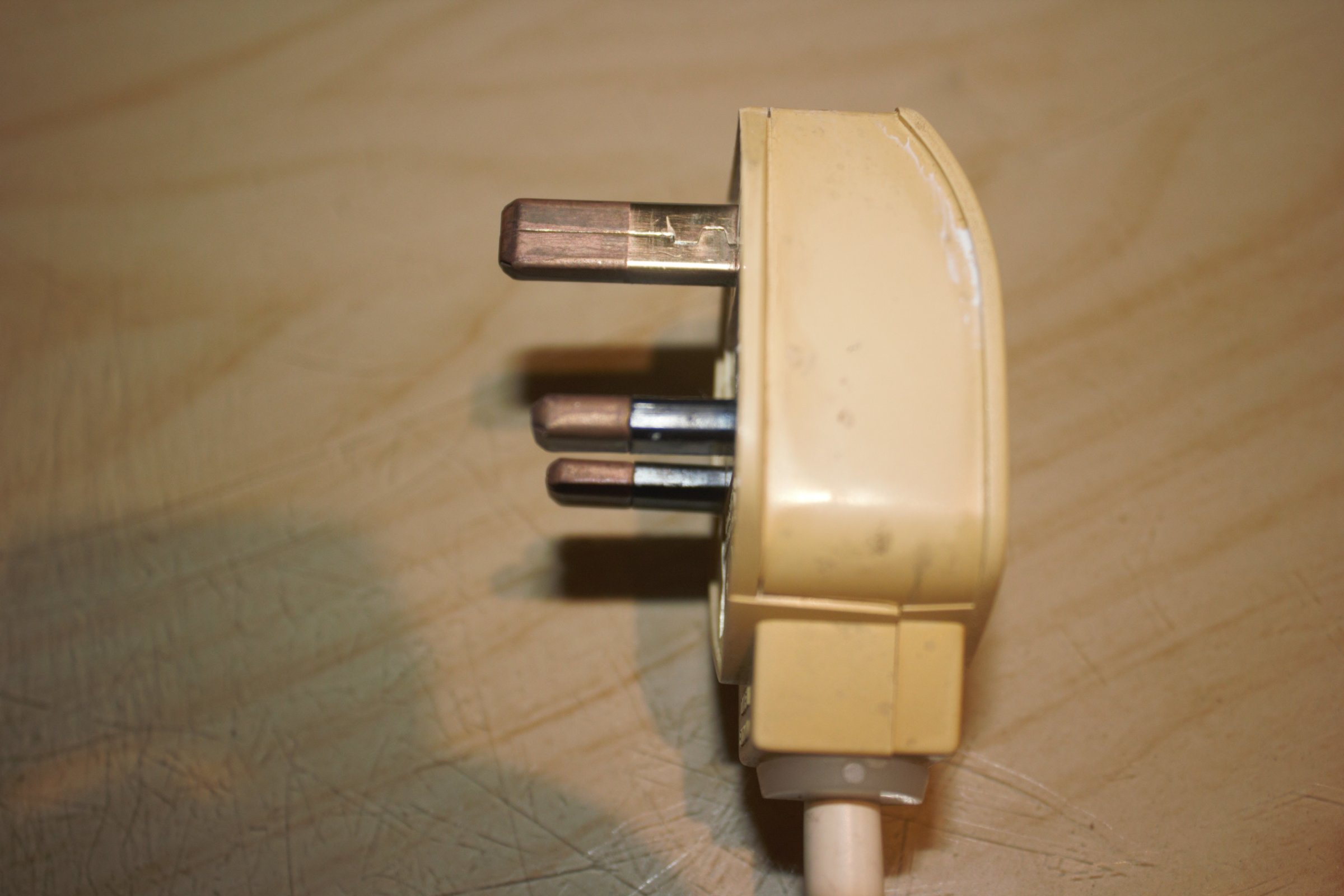First, a old plug that I got with a Nikon Labophot 2A microscope. As seen from the picture below, the pins on it are stamped/pressed! Has anyone seen this before, and did it comply with BS1363 when it was made? The plug is a two part sealed and non serviceable hard plastic plug.
(Yes I cleaned half of the earth pin.)
Second, we had to replace the steel tines on a Blacker & Decker Electric Lawn Rake from 1983, and during the process my mother who was insisting on taking it apart her self, took it apart to far and took the motor apart in the process.
When I was putting the motor and it's brushes back together, I noticed the thin grey wires for the motor windings simply slid loosely into tiny brass holes.
Were these original spot welded in as it seeps a dubious connection from the terminal block on the top to the actual windings?
Regards: Elliott.
(Yes I cleaned half of the earth pin.)
Second, we had to replace the steel tines on a Blacker & Decker Electric Lawn Rake from 1983, and during the process my mother who was insisting on taking it apart her self, took it apart to far and took the motor apart in the process.
When I was putting the motor and it's brushes back together, I noticed the thin grey wires for the motor windings simply slid loosely into tiny brass holes.
Were these original spot welded in as it seeps a dubious connection from the terminal block on the top to the actual windings?
Regards: Elliott.





